
IDF operating in Hamas’ main command center
(Video: IDF Spokesperson’s Unit)
The IDF Armored Corps’ 401st Brigade alongside the Air Force’s Shaldag Commando Unit has located the stronghold of Hamas’ leaders in the Gaza Strip, including the terror organization’s main headquarters.
7 View gallery
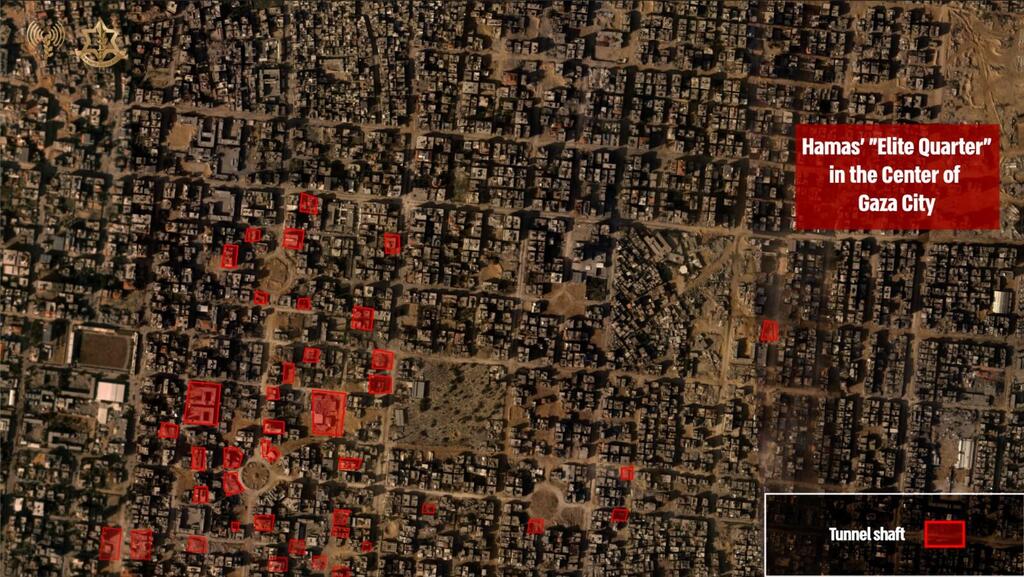

Tunnels from Hamas’ command center across Gaza
(Photo: IDF Spokesperson’s Unit)
“After securing the area, a ‘sweep and clear’ operation revealed the underground terrorist city which is part of Hamas’ tunnel system and includes a strategic tunnel route connected to other significant underground infrastructure in the Gaza Strip,” the IDF Spokesperson’s Unit said in a statement.
7 View gallery
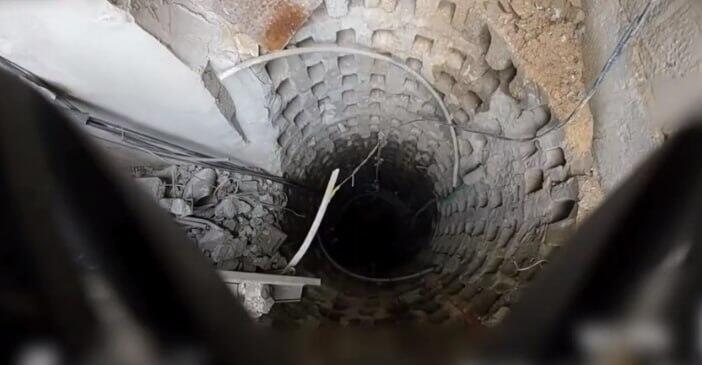

Tunnel leading to Hamas’ main command center
(Photo: IDF Spokesperson’s Unit)
“Tunnel shafts leading to the network of tunnels are located in the residences and offices of senior officials and allow for a covert descent through designated elevators and stairs. This enabled Hamas operatives to both escape and remain in hideouts for extended periods. The underground tunnel network includes blast doors and hideouts. In some cases, food products, water and electrical infrastructure were found that allowed for prolonged stays,” the statement added.
7 View gallery
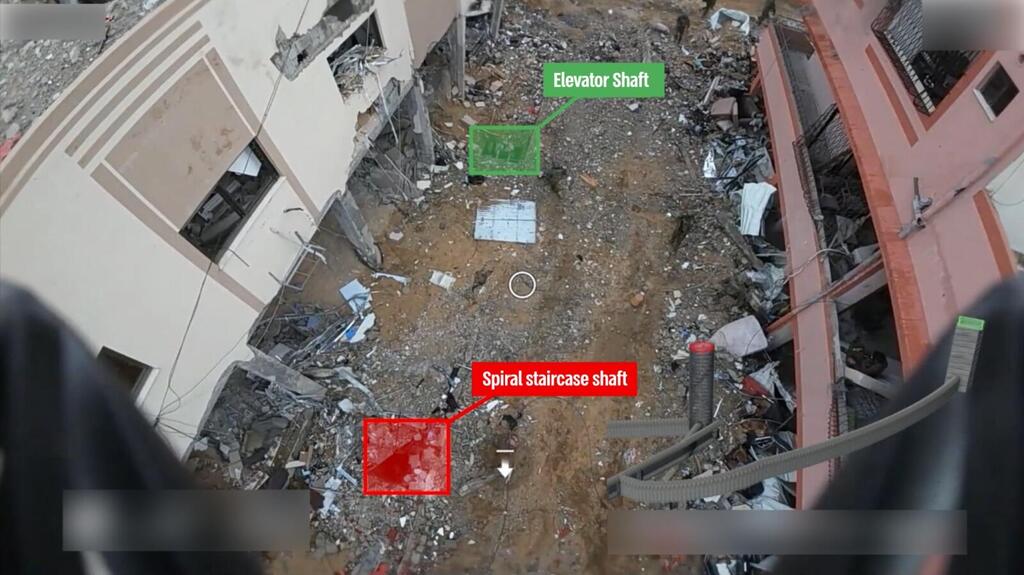

Aerial view of Hamas’ Command Center entrances
(Photo: IDF Spokesperson’s Unit)
7 View gallery
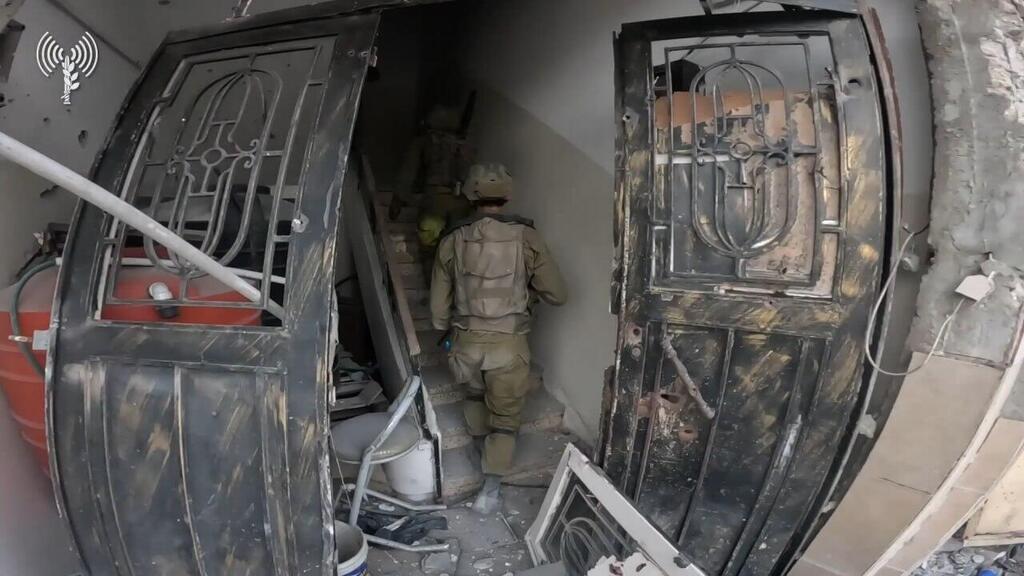

IDF forces operating in the area of Hamas’ main command
(Photo: IDF Spokesperson’s Unit)
“This network was used by the organization’s senior officials, Ismail Haniyeh, Yahya Sinwar, Muhammad Deif, and others, to direct Hamas’ operational activity. It was also used for protected daily movement through the heart of Gaza City,” according to the IDF.
The military found construction and digging equipment used by Hamas to construct the intricate tunnels, which include blast doors, weapons, ammunition and military equipment left behind in a 20-meter-deep tunnel.
“The tunnel shaft was demolished by explosives embedded by Hamas there, and numerous weapons and technological devices were found nearby,” according to the IDF.
7 View gallery
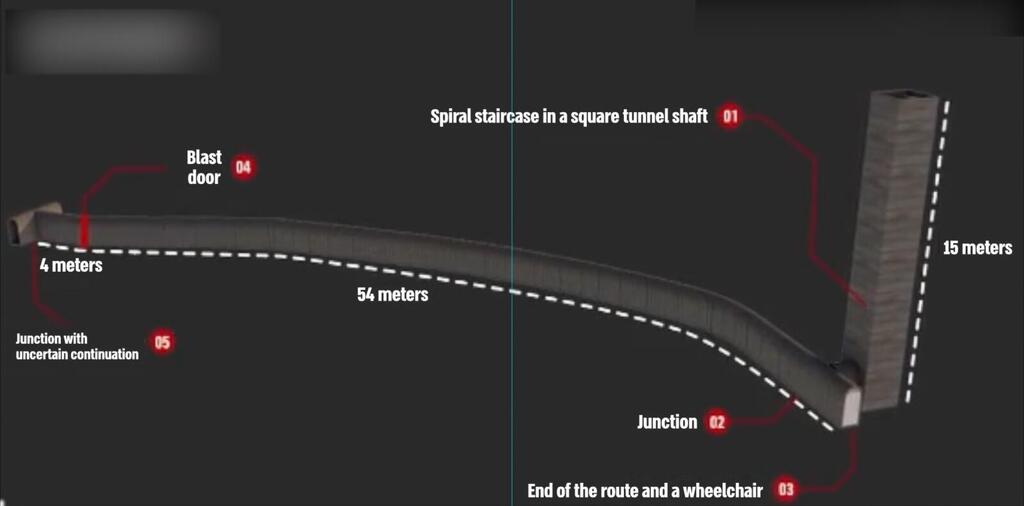

Diagram of Hamas’ command center
(Photo: IDF Spokesperson’s Unit)
According to the statement, forces arrived at Palestine Square, located in the city of Rimal, and operated within it to the full extent of their abilities.
“The forces carried out a combined and coordinated offensive on Palestine Square and took operational control over the area. Over the last few days, the area was completely secured. During the battles to secure the area, IDF forces eliminated approximately 600 terrorists in both ground and aerial operations,” the IDF said.
“Palestine Square was a center of Hamas’ military rule and is surrounded by buildings that served as command-and-control centers, terror tunnel shafts, and strategic buildings belonging to the organization. This military infrastructure was located in the direct vicinity of commercial stores, government buildings, civilian residences, and a designated school for deaf children, the IDF explained, further noting that these terror tunnels also connected to the Al Rantisi and Al Shifa hospitals in the Strip.
7 View gallery
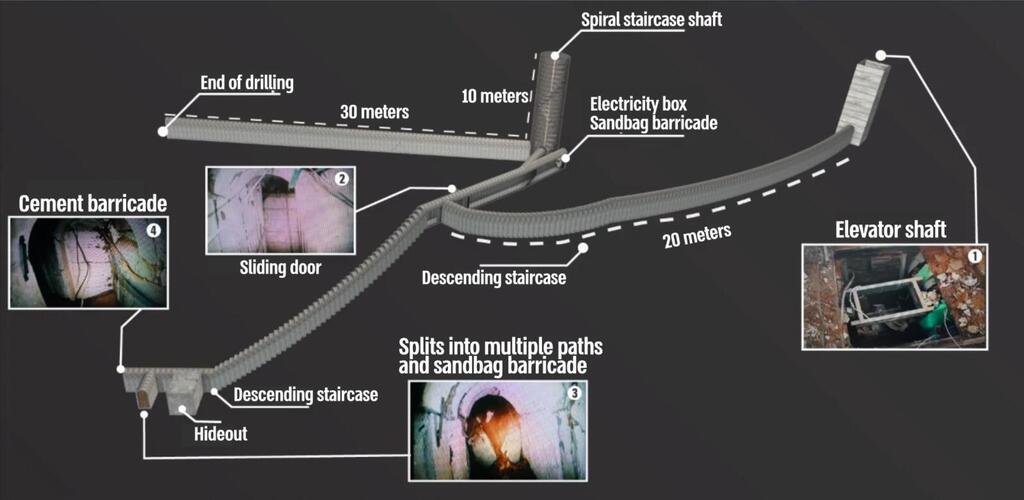

Diagram of Hamas’ command center
(Photo: IDF Spokesperson’s Unit)
Col. Aharon, the 401st Brigade’s commander overseeing the operation in the area, said: “This is a vibrant area in which thousands of Gazans live. Homes are designed in a very Western style. Anyone who wants to be at the heart of Hamas’ activities has an apartment, an office or an underground hiding place here.”
“There’s an underground world built here over decades – designed to protect Hamas’ leaders only, not Gaza’s citizens, nor terrorists, nor even field commanders,” he added. “We found hundreds of generators providing emergency power to senior Hamas members and giant batteries for long-term survival buried under the ground. This is a fortified urban space.”
Shaldag’s deputy commander D. who commanded troops in the underground facility said: “We reached Hamas’ nerve center and found sophisticated and complex tunnel systems. With our diverse technological means, we located many entrances that led to many others as well. We found over 20 large underground entrances with stairs and ladders. Each entrance serves as an escape route for senior Hamas figures as an escape to another tunnel network.”
The depth of Hamas’ main underground offices and ministries reached the limit of their digging capabilities, meaning up to the edge of the water table – some 50 meters to 60 meters below ground level. The complex included discussion rooms, recreation halls and a Cabinet meeting room.
The IDF is preparing to demolish the massive facility systematically, but no one in Israel can guarantee that this expansive terrorist base, like others in the Gaza Strip, won’t be rebuilt after the war ends.



